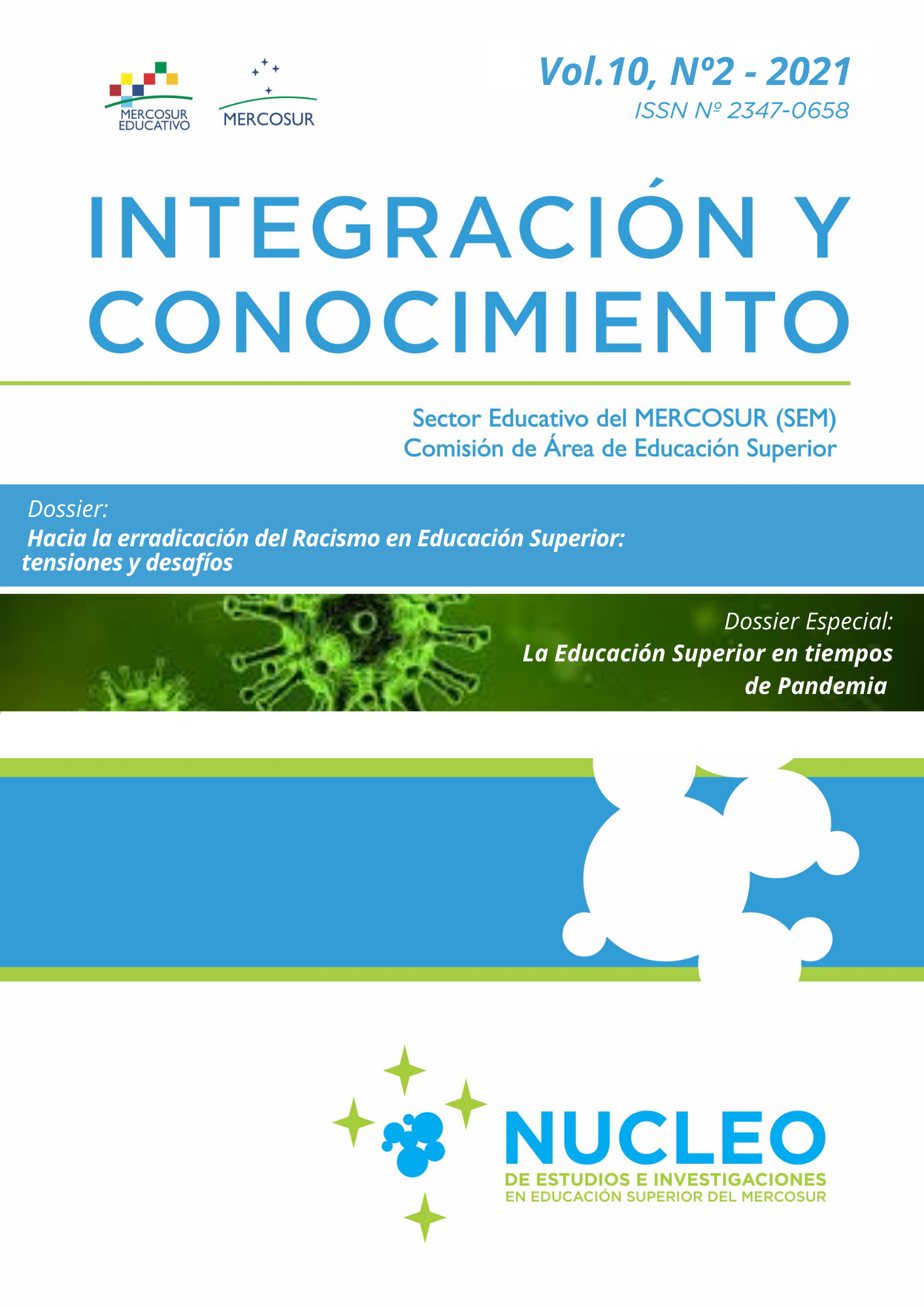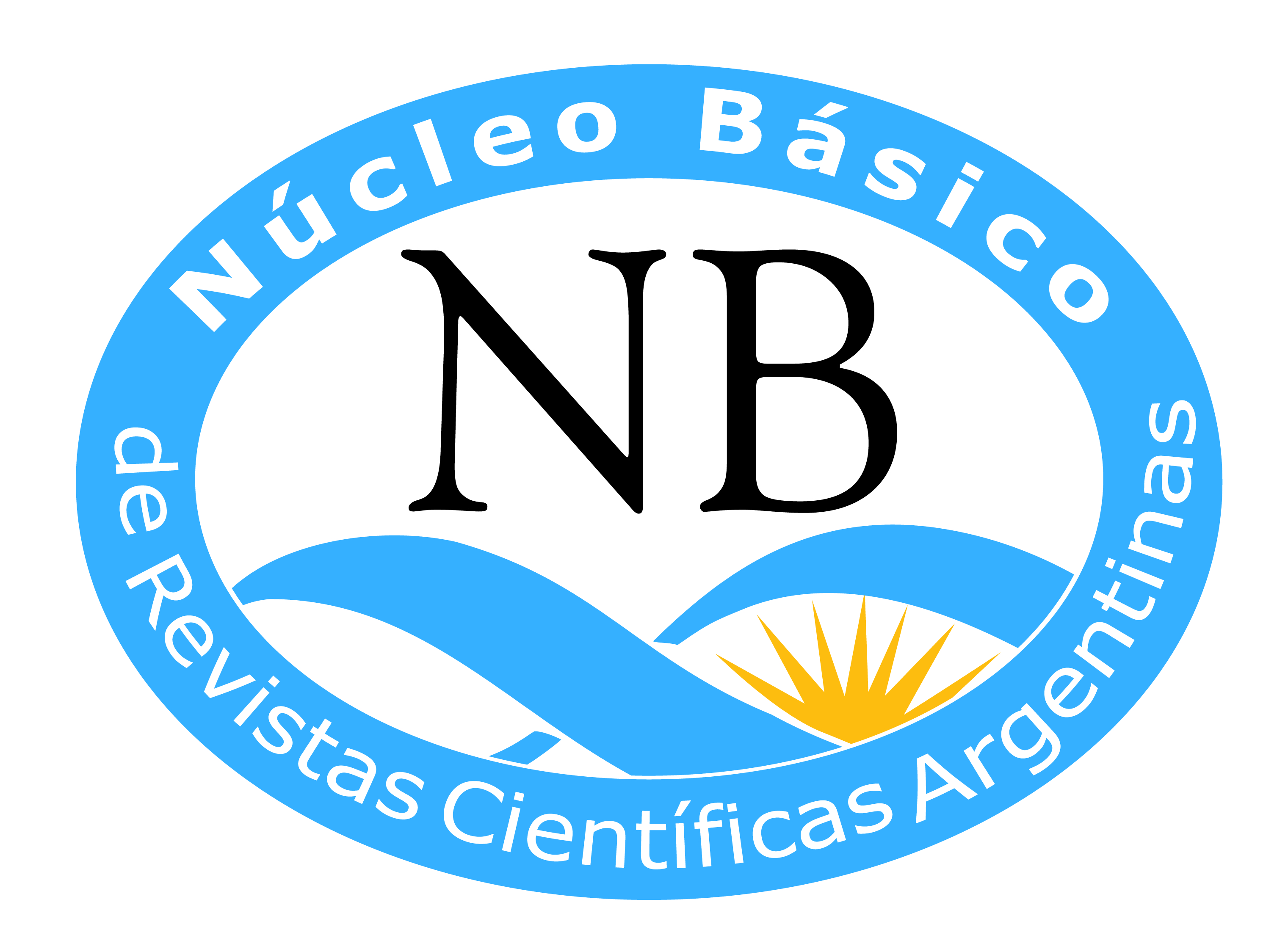Challenges and perspectives for Higher Education in Paraguay in a post-pandemic scenario
DOI:
https://doi.org/10.61203/2347-0658.v10.n2.34111Keywords:
pandemic, opportunity, Higher EducationAbstract
The COVID-19 Pandemic that the whole world is facing will leave unprecedented consequences
in all sectors of society, which will force us to reinvent ourselves. Therefore, the triggering question on which
this essay was about was: education in general and higher education in particular, what challenges and
perspectives must they face in order to adapt to the emerging normality? The methodology responds to a
scientific essay, as an attempt to approach of the problem posed, where personal expression is used the
methodology responds to a scientific essay, as an attempt to approach of the problem posed, where personal
expression is used. In this context, five challenges are addressed: (1) rethinking the Vision and Mission of
postgraduate programs, (2) implementing disruptive innovations, (3) evaluating the new face-to-face, (4)
broadening the view and conceiving postgraduate education as a system and, (5) revalue and institutionalize
human talent. Undoubtedly, the quality and quantity of public policies that are designed and implemented will
make the difference between an educational community that is resilient to the post-crisis and one that is not,
where the role of teachers, as well as decision makers will be fundamental.
Downloads
References
Agundez, M. (2009). Introducción a la sociología (IV): Herbert Spencer y la supervivencia del más apto. Revista Libertalia. Recuperado de https://www.revistalibertalia.com/single-post/2019/12/14/Herbert-Spencer-supervivencia-mas-apto
Azqueta, D. (1994). Valoración Económica de la Calidad Ambiental. Madrid, España: McGraw-Hill.
Banco Mundial. (2020). COVID-19: Impacto en la Educación y Respuestas de Política Pública. Recuperado de https://openknowledge.worldbank.org/bitstream/handle/10986/33696/148198SP.
pdf?sequence=6&isAllowed=y
Calame, P. (2009). Hacia una revolución de la gobernanza. Santiago de Chile, Chile: LOM Ediciones.
Calderón García, R. y Jiménez Torres, J. A. (2016). Retos y perspectivas de los postgrados en Jalisco. En M. Vergara Fregoso y R. Calderón García (Coord.), Procesos de formación y asesoría en programas de posgrado en educación en Latinoamérica (pp. 63-78). México: Universidad de Guadalajara
Calle, G.Y. y Sánchez, J.A. (2017). Influencia de los entornos personales de aprendizaje en las habilidades metacognitivas asociadas a la escritura digital. Entramado, 13 (1), 1-24.
Castañeda, L. (2020). Académica española reflexionó sobre los retos para la universidad en la post pandemia. Ponencia presentada en ocasión de las celebraciones por los 81 años de la Universidad Nacional de Cuyo. Argentina: Universidad de Cuyo. Recuperado de http://www.uncuyo.edu.ar/prensa/academica-espanola-reflexiono-sobre-los-retos-para-la-universidad-en-la-post-pandemia
Comisión Económica para América Latina y el Caribe (CEPAL). (2010). Espacios iberoamericanos: vínculos entre universidades y empresas para el desarrollo tecnológico. Santiago de Chile, Chile: CEPAL
Comisión Económica para América Latina y el Caribe (CEPAL). (2020). América Latina y el Caribe ante la pandemia del COVID-19. Efectos económicos y sociales. Recuperado de https://repositorio.cepal.org/bitstream/handle/11362/45337/6/S2000264_es.pdf
Duarte de Krummel, M. (2018). Las universidades del Paraguay y su influencia en la transformación social. Revista Científica de la UCSA, 5 (3), 64-68.
Dávalos, L. A. (2017). El estado de la ciencia en Paraguay. España: Universidad Politécnica de Valencia.
Florida, R. (2010). La clase creativa. La transformación de la cultura del trabajo y el ocio en el siglo XXI. Barcelona, España: Paidós
Ganga-Contreras, F. y Nuñez-Mascayano, O. (2018). Gobernanza de las organizaciones: Acercamiento conceptual a las instituciones de Educación Superior. Revista Espacios, 39 (17), 1-9.
Herrera E.; Bonilla, H. y Molina, L.F. (2013). Ciudades creativas: ¿paradigma económico para el diseño y la planeación urbana? Revista Bitácora Urbano Territorial, 22 (1), 11-20.
Jaramillo Ríos, S; Mendoza VM. (2004). Guía para la Elaboración de Ensayos de Investigación. Razón y Palabra, 41(1). Recuperado de http://www.razonypalabra.org.mx/anteriores/n41/
index.html
Martínez, J. (2020). No aprender sale muy caro. Newsletter Nowledge Works. Recuperado de http://knowledgeworks.cl/wp-content/uploads/2020/10/newsletter_174.htm
Núñez, R. (2019). ¿Porqué no prospera la innovación en América Latina? Esglobal. Recuperado de https://www.esglobal.org/por-que-no-prospera-la-innovacion-en-america-latina/emprendedores
Rama, C. (2007). Los postgrados en América Latina y el Caribe en la sociedad del conocimiento. México DF, México: Unión de Universidades de América Latina y El Caribe.
Ramió, C. (2020). Aparatos estatales innovadores. La insoportable levedad de la innovación pública: una diáspora. Boletín TOP, (21). Recuperado de http://www.top.org.ar/ECGP/
FullText/000020/20314.pdf?utm_source=sendinblue&utm_campaign=Boletn_TOP_N_21_Octubre_2020&utm_medium=email
Vidal, M., Carnota, O. y Rodríguez, A. (2019). Tecnologías e innovaciones disruptivas. Revista Cubana de Educación Médica Superior, 33(1), 1-13
Downloads
Published
Issue
Section
License

This work is licensed under a Creative Commons Attribution-NonCommercial-ShareAlike 4.0 International License.
Authors who have publications with this journal accept the following terms:
a. Authors shall retain their copyright and guarantee the journal the right of first publication of their work, which shall simultaneously be subject to the Creative Commons License of Recognition which allows third parties to share the work as long as its author is indicated and its first publication is this journal.
b. Authors may adopt other non-exclusive licensing agreements for the distribution of the published version of the work (e.g., depositing it in an institutional telematic archive or publishing it in a monographic volume) provided that the initial publication in this journal is indicated.
c. Authors are allowed and encouraged to disseminate their work via the Internet (e.g. in institutional telematic archives or on their website) after publication of the article, which may lead to interesting exchanges and increased citations of the published work. (See The Effect of Open Access).



